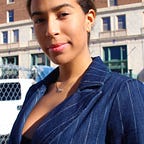Recreated Moment: A Day in the Life of a Teen with Post-Concussion Syndrome
The soft pitter-patter of rain against a window replaced the once ear-shattering iPhone alarm of Hans Encarnación, 17. Despite the peaceful Seattle sunrise, doubt creeped into Encarnación’s head the same way sunlight tiptoed into his room. Every morning has been the same for Encarnación since that fateful summer night. A six-foot fall from grace, that resulted in Encarnación hitting his head, made him yearn for a listening ear.
He has only two seconds of conscious calm before fear of a cerebral-storm sets. “Do I have a headache,” wonders Encarnación — a question that which he already knows the answer. Trudging through his dewy mental-fog, Encarnación makes his way down the hallway. The cavernous bathroom affords Encarnación’s eyes another moment of benevolence before LED rays of light loiter around his optic nerve. After slipping into the day’s dress, the lanky teenager follows his nose to the kitchen.
“Make sure you get every bite, Hans,” says Mark, Encarnación’s father. “You need your vitamins for healing.”
Encarnación thinks to himself: I am approaching the seventh month of ‘healing.’
With every crack of boiled egg, he ponders, “How much time do I have left?” Glimmers of hope dance across the red and blue casing of two extra strength Tylenol — the last line of defense against the clock. The Ghost of Normalcy Past relentlessly taunts Encarnación. He gathers his strength for the day, remembering the impending pain that Post-Concussion Syndrome (PCS) presents to him every day.
“I am constantly thinking about my headaches, my symptoms, and how isolated I feel,” Encarnación says. “It is hard for others to truly understand what I am going through.”
As the departure time approaches, Encarnación grabs his Air Pods Pro — what he considers to be his lifesaver. He finds freedom from the painful constraints of PCS in a gift from two Christmases ago. “Headphones help me relax and focus on music,” Encarnación explains. “Honestly, they prevent me from having to talk to certain people because with headphones, with music, I can be myself.” Encarnación refrains from saying ‘parents’ — understanding the hurt it would cause his mother and father, Tessa and Mark. “PCS is a hard and lonely fight,” Encarnación says with a sigh.
The comforting sense that the word ‘normal’ once provided Encarnación now ridicules him. “At school, I have to try my best to act like I am not enduring a headache, but that is really hard to deal with, let alone do,” says Encarnación. “It is physically exhausting to try to act a certain way; to complete problems, at a pace that is the same as or faster than my classmates; or talk with friends like everything is okay.”
By the time lunch rolls around, the cerebral storm from the morning turns into a dense fog. In conversations, Encarnación loses his train of thought — a hurdle he never believed he would encounter. “Everything from the simplest interactions to elementary-level reading passages gives me anxiety,” says Encarnación. “At home and at school, I am worried I will slow everything down.”
During the lunch hour, Encarnación lies down in the library. Halfway through the day, his body feels the physical taxation and mental drain of PCS. His brain and eyes beg for a break. “School is a hard environment,” Encarnación says through a wince. “It can be overstimulating, but quiet-time comes at the price of not being able to talk to friends during lunch — not being normal.”
As for his after-school activities, Encarnación is at the mercy of his symptoms. Headaches constantly push tennis out of the frame, while doctor appointments pull Encarnación away from his beloved volunteer work at the Bellevue Arts Museum.
“By the end of the day, I am so depleted that it is difficult to complete homework,” says Encarnación with a sigh. “I am battling dizziness, a headache, and fatigue.”
The strain of day-to-day life is painted across Encarnación’s face. “I feel very lost and distraught,” he says. “I want to give up because I don’t feel like I can continue working through all of the pain.”
Pushing himself to what feels like his limit, Encarnación catches a breath while staring at his dinnerplate. He thinks to himself: They get me at my worst. They get me when I am drained from the day.
“I know it is rough for them too, especially during this time of day,” mutters Encarnación, as he refers to Tessa and Mark. “I’m so tired so I just eat without talking to them.”
His day concludes on a memory-foam pillow. Yet, the comfort a bed typically provides vexes Encarnación. “Every night, before I can fully drift off, I think to myself, ‘Oh man, I really have to go through this all over again tomorrow.’”
In an arduous cycle that seems never-ending, Encarnación longs for the day that PCS releases him from its grasp.
“Post-Concussion Syndrome has brought out a totally new level of isolation, even with COVID and quarantine; it is different.” Encarnción laments, “I cannot even be around family sometimes when my symptoms are bad; therefore, I feel extreme loneliness.” Encarnación hopes that his light at the end of the tunnel will appear soon.
“I am living with these symptoms every day and it is so difficult because eventually COVID will subside,” he says. “I cannot say the same about my Post-Concussion Syndrome.”
